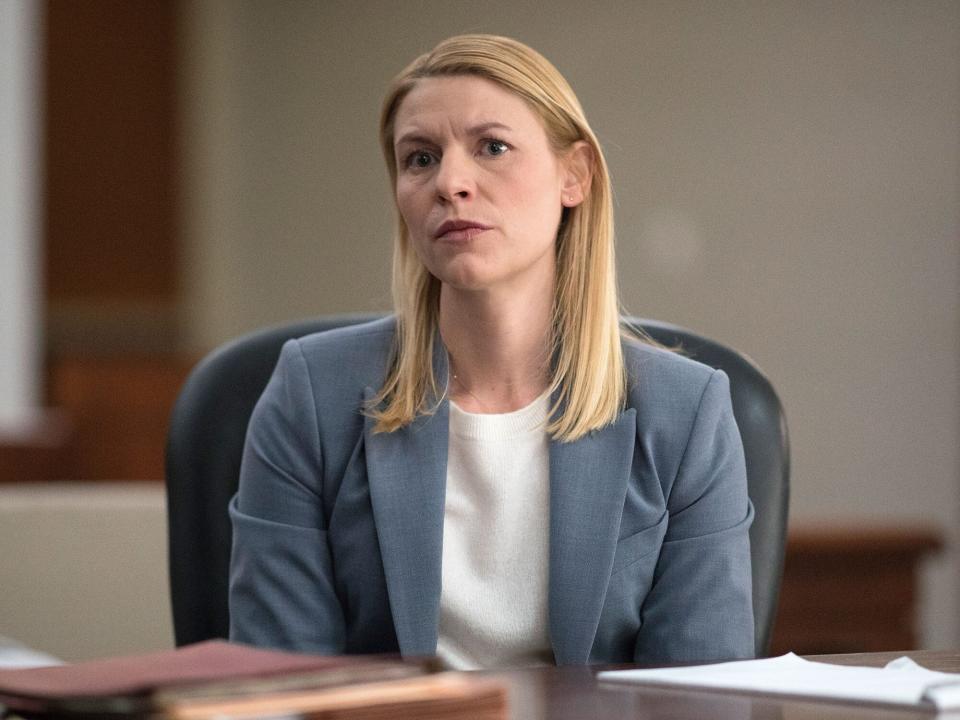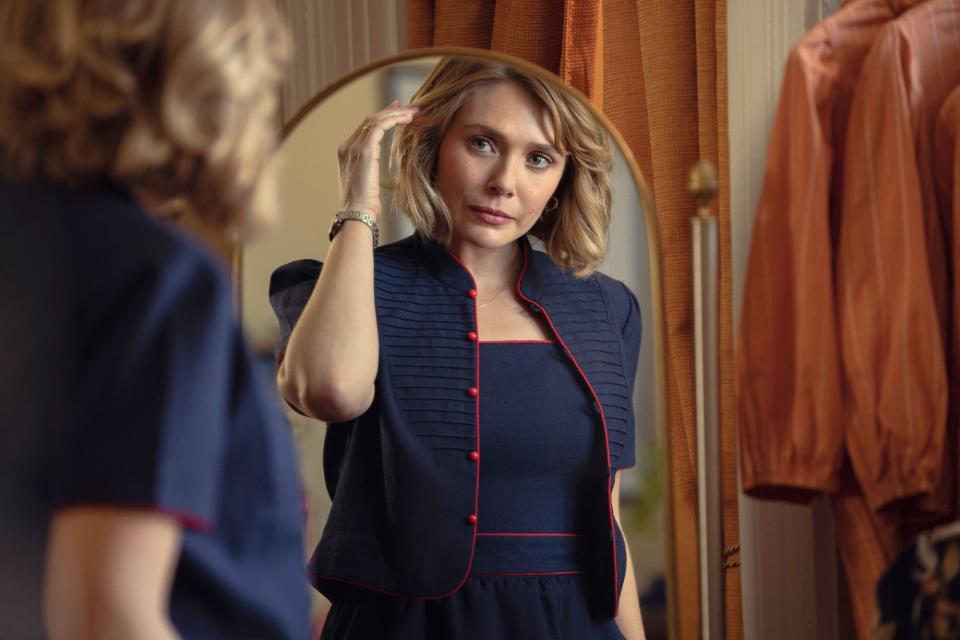Director Lesli Linka Glatter believes giving back through mentorship is 'part of the process'

EW Game Changers is a series profiling the people and projects making an impact in diversity, equity, and inclusion in entertainment.
Director Lesli Linka Glatter works just as hard to help the next generation of storytellers as she does behind the camera.
When Glatter began her filmmaking career in 1985 with Oscar-nominated short film Tales of Meeting and Parting, there were very few women directing. As she worked on a range of television shows, including Mad Men, Gilmore Girls, and Homeland, she never forgot how mentors helped her in the early days of her career. As a result, paying forward that guidance to help others is an essential part of the legacy she's creating.
Before standing behind the camera, Glatter was a dancer and choreographer. She spent 11 years overseas, from Europe to the Far East, which allowed her to grow as an artist and start her journey to directing. While based in Tokyo, she studied the work of filmmakers like Akira Kurosawa and Kenji Mizoguchi. "I was heavily influenced by Japanese films," she says. Hence her decision to siwtch careers. "I needed to tell stories in a new way, and that was the motivating factor," she explains.

Getty Images Lesli Linka Glatter
Without a formal education, she watched films and took acting classes to prepare. That, coupled with mentorship, kickstarted her career. Glatter notes that having Steven Spielberg and David Lynch as her first mentors is the reason she's so passionate about the subject. "Those directors had a huge impact on me. It was all about story. Being sure you know what story you're telling, what the subtext is, what the text is, and how to get under a character," she explains.
After making her first film, Glatter worked on the anthology series Amazing Stories, where she shadowed Spielberg and Clint Eastwood. While the two were very different behind the camera, she did learn one important lesson. "You've got to find your way. There's no one right way to do this," she says about what she learned. They taught her to trust her instincts, especially when a scene isn't working.
Reflecting on what she learned from Lynch working on Twin Peaks, she recalls a scene in the pilot where Kyle MacLachlan's character is in a bank vault with a deer head sitting on the table. Glatter asked Lynch about it, and he said it was simply there when he walked onto the set. It wasn't a specific stylistic choice from him, which ended up being a big moment for the storyteller. "Something cracked open for me," she says. "Be sure you're open to the deer head on the table, be open to life, and magic can happen."
Early on in her career, she noticed a stark difference between how women are represented in dance and film. "Dance is very female," Glatter says. "When I came into the film business, there were so few women directors. I was told by people that there's only room for one of us at the table and helping other women would harm me. I didn't want to live in that world, and I can tell you categorically that helping other women only added to my life."

Antony Platt/SHOWTIME Claire Danes on 'Homeland'
The dearth of women directing was one of the reasons Glatter felt compelled to get involved in the Director' Guild of America in 2003. "I got involved and realized there was an amazing community there. I have an incredible community of directors, and I am so grateful for that," she says. Glatter has been the president of the DGA since 2021. She also worked with Jennifer Salke, NBC President at the time, to develop Female Forward in 2018, an initiative giving women a chance to shadow directors and then ultimately, direct an episode for the network. "I was always mentoring, but I wasn't in that position," Glatter says. "To me, that changed everything. You have to put your skin in the game to make a qualitative and quantitative difference." (Olivia Newman and Ramaa Mosley are two of the numerous directors who participated in the program and went on to have great careers.)
"Giving back is part of the process," she says. Aside for the push for increased diversity and inclusion, Glatter has a handful of issues she's passionate about. "We're going into negotiations into economic rights, people's health plans, pension plans, and more. There are many facets, and I feel a huge responsibility," she explains.
The hard work across the industry is paying off, and Glatter is hopeful that the progress will continue. She has seen the percentage of female directors in television increase since she began her career. "I would have been the first female director on most shows I was on. That is not the case now," she explains, referencing storytellers like Chloé Zhao, Gina Prince-Bythewood, Chinonye Chukwu, and Jane Campion. "If you look at the stories that are being told by women now, I'm blown away by the range and skill," she says.
Alongside that progress, Glatter is continuing to tell great stories herself. The Emmy-nominated director's credits range from Pretty Little Liars to Pieces of Her. Next up is HBO Max's Love & Death, based on the true story of 1980's Texas housewife Candy Montgomery (played here by Elizabeth Olsen), who was accused of murder. To Glatter, who is an executive producer and directs five of the seven episodes, the limited series is about the dark side of the American dream. These characters did everything right: They got married young, had children, and moved to the suburbs. "So why is there a hole in their hearts and psyche a mile wide that can't be filled? Our main character in this story makes a bad choice about how to fill that deep hole, and that exploration was really interesting to me," she says about Olsen's character.

Jake Giles Netter/HBO Max Elizabeth Olsen as Candy Montgomery in 'Love & Death'
Glatter's work on Love & Death highlights a complication within the current television landscape. "The amount of directors being hired has gone down," she says about how one person might direct multiple episodes of a series. Glatter is directing a lion's share of the limited series, and on her next project, Zero Day starring Robert De Niro, she's directing all the episodes. With streamers and television around the world increasing, there's more opportunity overall, but she recognizes that having a select few people direct full seasons (or series) presents a problem.
And yet, the number of interesting stories being told only seems to increase. "I am fascinated by stories where people are put in extraordinary circumstances where they are forced to deal with who they really are," she says.
As for who gets to tell those stories, Glatter says she looks forward to the day where a discussion about how many women or people of color are part of the storytelling population isn't necessary, but until then, her work will continue. To put it simply, she says, "It should be an equal playing field."
Love & Death premieres April 27 on HBO Max.
Related content:

